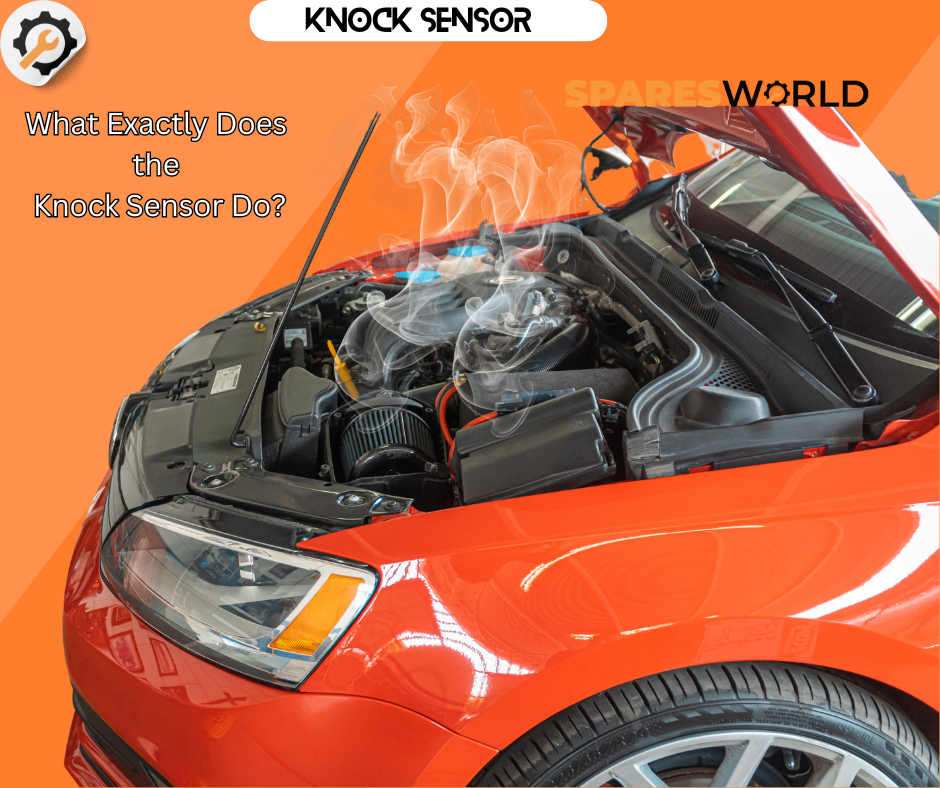The Knock Sensor: Your Car’s Secret Weapon for a Smooth Ride

Hidden deep within your engine is a small but mighty component that plays a crucial role in keeping your car running smoothly and efficiently: the knock sensor. While it may not be as well-known as the engine or transmission, this little sensor is a powerful guardian of your engine’s health, protecting it from damage caused by knocking and misfires. Curious about how something so small can have such a big impact? Let’s dive into the world of the knock sensor and why keeping it in top shape is critical to your car’s performance.
What Exactly Does the Knock Sensor Do?
The knock sensor is like the ears of your car’s engine, constantly listening for any unusual vibrations or knocking sounds that indicate abnormal combustion. When your engine is running, air and fuel mix inside the combustion chamber and ignite at the right time, providing power to your car. But sometimes, if the timing is off or the air-fuel mixture isn’t right, it can cause engine knock—a damaging detonation that can destroy engine parts if left unchecked.
Here’s where the knock sensor steps in. It detects the knocking before it becomes a bigger problem, sending a signal to the engine control unit (ECU) to adjust the timing or fuel mixture. This adjustment prevents further knocking, ensuring a smoother, safer ride and prolonging the life of your engine.
Why Is the Knock Sensor So Important?
While engine knock might not sound like a big deal, it can cause serious damage to your engine if ignored. If the knock sensor fails, your engine won’t know when something is wrong, leaving it vulnerable to overheating, cracked pistons, and even catastrophic failure. Here’s why keeping your knock sensor in good condition is essential:
-
Protects Your Engine: The primary role of the knock sensor is to prevent engine damage. When knock occurs, it can cause parts like the pistons, rods, and bearings to wear out faster or break altogether. By catching these knocks early, the sensor prevents costly repairs and ensures your engine runs smoothly.
-
Improves Fuel Efficiency: When your engine is knocking, it’s not running efficiently. The knock sensor helps fine-tune the air-fuel mixture and timing, allowing your engine to run at optimal efficiency. This means you’ll get better fuel economy and save money at the pump.
-
Enhances Performance: A well-functioning knock sensor ensures that your engine operates smoothly and at peak performance. By avoiding knocking and ensuring the engine runs at the right settings, you’ll experience better acceleration and a more responsive driving experience.
How Do You Know If Your Knock Sensor Is Failing?
If your knock sensor starts to fail, your car may give you some warning signs that something isn’t right. Here are the key symptoms to watch out for:
-
Check Engine Light: The most common sign of a failing knock sensor is the check engine light on your dashboard. Since the knock sensor is connected to the ECU, it can trigger this light if it detects a problem. Don’t ignore it—get it checked out right away.
-
Poor Engine Performance: A bad knock sensor can cause your engine to misfire, hesitate, or run unevenly. You might notice a loss of power when accelerating or a rough idle, indicating that the engine timing is off.
-
Bad Fuel Economy: If your knock sensor isn’t working, your engine won’t be able to adjust for knocking, causing it to burn more fuel. If you’re stopping at the gas station more often than usual, your knock sensor could be to blame.
-
Pinging or Knocking Sounds: If you hear a knocking or pinging noise coming from your engine, it’s a clear sign that combustion isn’t happening as it should. This could mean your knock sensor is malfunctioning or completely failing to detect the knock.
How to Maintain Your Knock Sensor
Thankfully, maintaining your knock sensor is relatively simple. Here are some tips to keep it in good condition:
-
Regular Diagnostics: Have your car’s engine checked periodically to ensure all sensors, including the knock sensor, are working properly. A diagnostic scan can reveal any issues before they become serious.
-
Listen to Your Engine: If you hear any unusual knocking sounds or notice performance issues, don’t wait. Address the problem immediately before it leads to engine damage.
-
Replace When Necessary: Like any other car part, the knock sensor can wear out over time. Most mechanics recommend replacing the knock sensor if it fails or shows signs of wear, as driving with a bad sensor can lead to more expensive repairs down the road.
The Knock Sensor: Small Part, Big Protection
It’s easy to overlook the knock sensor, but it plays a crucial role in keeping your engine healthy and your ride smooth. Without it, your engine would be vulnerable to damage, poor performance, and lower fuel efficiency.
At Sparesworld, we understand the importance of keeping your knock sensor and other engine components in top condition. Whether you’re in need of a new knock sensor or just want expert advice on maintaining your engine, we’ve got you covered. Visit us today for all your car care needs and ensure that your engine stays protected!
Keep your ride smooth, your engine healthy, and your wallet happy—check that knock sensor!

 Loading..
Loading..